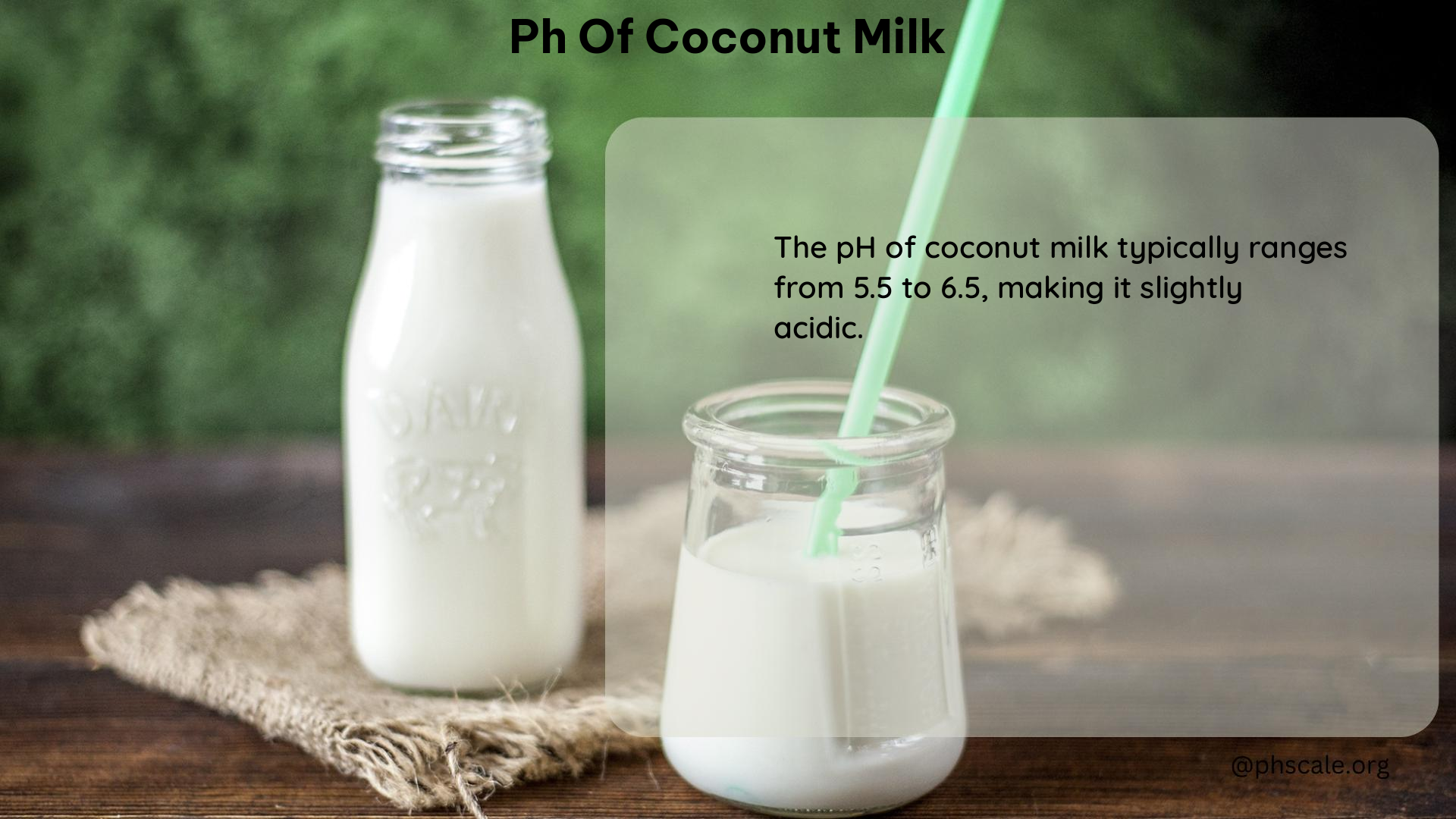The pH of coconut milk is a crucial factor that can impact its nutritional properties, taste, and overall quality. Ranging from slightly acidic to mildly alkaline, the pH of coconut milk is influenced by various factors, including the type of coconut used and the manufacturing process. In this comprehensive blog post, we’ll delve into the intricacies of the pH of coconut milk, providing you with a deeper understanding of this versatile ingredient.
Understanding the pH Range of Coconut Milk
Coconut milk can have a pH range of 5.2 to 7.2, with the average pH being around 6. This wide range is primarily due to the differences in the type of coconut used and the manufacturing techniques employed.
Fresh vs. Dried Coconut
Fresh coconut is alkaline-forming, while dried coconut is acid-forming. This distinction directly impacts the pH of the resulting coconut milk. Fresh coconut milk tends to be more alkaline, while dried coconut milk is more acidic.
Manufacturing Techniques
The pH of coconut milk can also be influenced by the manufacturing process. Canned coconut milk may have a slightly different pH compared to cartoned coconut milk, as the canning process can affect the acidity levels.
Factors Affecting the pH of Coconut Milk

Several factors can influence the pH of coconut milk, including the type of coconut used, the manufacturing process, and potential contaminants.
Type of Coconut
The type of coconut used in the production of coconut milk can significantly impact its pH. Fresh coconut, which is more alkaline, will result in a higher pH, while dried coconut, which is more acidic, will lead to a lower pH.
Manufacturing Process
The way coconut milk is produced can also affect its pH. Traditional methods of grating the white inner flesh of mature coconuts and mixing it with hot water can influence the final pH of the product.
Contaminants and Chemicals
Coconut milk can be susceptible to contamination by bacteria, mold, and other microorganisms during storage, which can alter its pH level and overall quality.
Balancing the pH of Coconut Milk
To ensure a balanced pH in coconut milk, it’s essential to choose a product that is made from fresh coconut and has a pH closer to 7. Additionally, consuming a balanced diet with both acid-forming and alkaline-forming foods can help maintain a healthy pH level in the body.
Choosing the Right Coconut Milk
When selecting coconut milk, look for products with a pH between 6.1 and 7. This range ensures that the milk is not too acidic or too alkaline, providing a balanced pH.
Proper Storage and Handling
Proper storage and handling of coconut milk are crucial to maintaining its pH balance. Store the milk in a cool, dry place to prevent contamination and spoilage.
Health Benefits of Balanced pH Coconut Milk
Consuming coconut milk with a balanced pH can provide various health benefits, such as improving muscle mass and reducing the risk of acid reflux and heartburn.
Improved Muscle Mass
The alkaline nature of fresh coconut milk can help support muscle growth and development, making it a beneficial addition to a balanced diet.
Reduced Acid Reflux and Heartburn
The pH balance of coconut milk can also help alleviate symptoms of acid reflux and heartburn, as it can neutralize excess stomach acid.
Conclusion
The pH of coconut milk is a complex and fascinating topic, with a range that can vary depending on the type of coconut used and the manufacturing process. By understanding the factors that influence the pH of coconut milk, you can make informed choices to ensure you’re consuming a balanced and high-quality product. Whether you’re using coconut milk in your cooking, baking, or as a beverage, paying attention to its pH can help you maximize the nutritional benefits and enjoy the full flavor of this versatile ingredient.
Reference:
- https://www.sciencedirect.com/topics/agricultural-and-biological-sciences/coconut-milk
- https://www.researchgate.net/figure/10-w-w-coconut-milk-emulsions-adjusted-to-different-pH-values_fig8_24038980
- https://www.healthline.com/health/ph-of-milk
